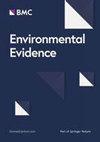What evidence exists on the impact of climate change on real estate valuation? A systematic map protocol
IF 5.2
4区 环境科学与生态学
Q2 ENVIRONMENTAL SCIENCES
引用次数: 0
Abstract
As natural disasters increase in both frequency and magnitude because of climate change, assets, such as buildings and infrastructure, are exposed to physical climate risk. In addition, as our societies transition towards a greener economy, the transitional climate risk will manifest itself in different forms: reputational issues, market solutions that may drive out those that do not comply, technological disruptions and policy initiatives. How both risks, physical and transitional, impact the economic value of real estate assets is not well understood and will be investigated as the main scope of this systematic map. we use systematic mapping to collate and configure existing evidence on how climate risk has affected the economic value of real estate assets. After designing a search string, English language peer-reviewed publications will be retrieved from the two largest and most popular scientific research databases, as well as a database containing policy documents. This corpus will be tested for comprehensiveness using a benchmark of 50 highly relevant articles. Once the comprehensiveness test is passed, a consistency test will be carried out on the screening of a randomly selected list of 200 articles by three reviewers. If a kappa score of at least 0.6 is achieved, one of the reviewers will carry out the remainder of the screening, with another reviewer quality assuring 10% of the screening. The retained corpus will then be distributed over the three reviewers, who will carry out the extraction of metadata according to an agreed coding strategy. The final output of the coding will consist of a heat map, showcasing where substantial evidence is available, and research gaps, providing recommendations for further research. In addition, the results will provide insight into the methodology to quantify the impact of climate risk on real estate value. Figures and tables will be designed to make it easy to comprehend the results of the mapping.气候变化对房地产估值的影响存在哪些证据?系统的地图协议
由于气候变化,自然灾害的频率和规模都在增加,建筑物和基础设施等资产面临着物理气候风险。此外,随着我们的社会向绿色经济转型,转型气候风险将以不同的形式表现出来:声誉问题、可能驱逐不合规者的市场解决方案、技术中断和政策举措。物理风险和过渡性风险是如何影响房地产资产的经济价值的,目前还没有得到很好的理解,将作为本系统地图的主要范围进行研究。我们使用系统的绘图来整理和配置关于气候风险如何影响房地产资产经济价值的现有证据。在设计了一个搜索字符串之后,将从两个最大和最受欢迎的科学研究数据库以及一个包含政策文件的数据库中检索经过同行评审的英文出版物。该语料库将使用50篇高度相关文章的基准来测试其全面性。综合检验通过后,由3名审稿人随机抽取200篇文章进行一致性检验。如果kappa得分至少达到0.6,其中一名审稿人将进行剩余的筛选,另一名审稿人质量保证10%的筛选。然后,保留的语料库将分配给三位审稿人,他们将根据商定的编码策略执行元数据的提取。编码的最终输出将包括一张热图,显示有实质性证据的地方和研究差距,并为进一步研究提供建议。此外,研究结果将深入了解量化气候风险对房地产价值影响的方法。图表和表格将被设计成便于理解映射的结果。
本文章由计算机程序翻译,如有差异,请以英文原文为准。
求助全文
约1分钟内获得全文
求助全文
来源期刊

Environmental Evidence
Environmental Science-Management, Monitoring, Policy and Law
CiteScore
6.10
自引率
18.20%
发文量
36
审稿时长
17 weeks
期刊介绍:
Environmental Evidence is the journal of the Collaboration for Environmental Evidence (CEE). The Journal facilitates rapid publication of evidence syntheses, in the form of Systematic Reviews and Maps conducted to CEE Guidelines and Standards. We focus on the effectiveness of environmental management interventions and the impact of human activities on the environment. Our scope covers all forms of environmental management and human impacts and therefore spans the natural and social sciences. Subjects include water security, agriculture, food security, forestry, fisheries, natural resource management, biodiversity conservation, climate change, ecosystem services, pollution, invasive species, environment and human wellbeing, sustainable energy use, soil management, environmental legislation, environmental education.
 求助内容:
求助内容: 应助结果提醒方式:
应助结果提醒方式:


